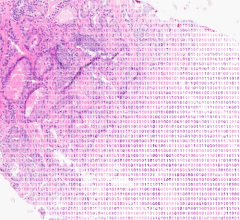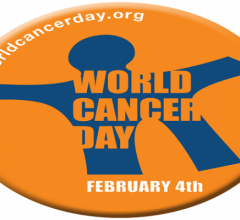December 26, 2007 - The Damon Runyon Cancer Research Foundation named 17 new Damon Runyon Fellows at its November 2007 Scientific Advisory Committee review.
The recipients of this prestigious, three-year award are outstanding postdoctoral scientists conducting basic and translational cancer research in the laboratories of leading senior investigators across the country. The fellowship is specifically intended to encourage the nation's most promising young investigators to pursue careers in cancer research by providing them with independent funding to work on innovative projects. The Damon Runyon Cancer Research Foundation has committed more than $200 million to support the careers of cancer researchers across the United States since the program's inception.
2007 Damon Runyon Fellows:
1. Lu Bai, Ph.D., with her sponsors Frederick R. Cross, Ph.D., and Eric D. Siggia, Ph.D., at The Rockefeller University, New York, New York, is investigating key features in promoter architecture and chromatin structure that govern the transcription of cell cycle-regulated genes, which is an important issue in understanding general cancer mechanisms.
2. Eric J. Bennett, Ph.D., with his sponsor J. Wade Harper, Ph.D., at Harvard Medical School, Boston, Massachusetts, is utilizing rational high-throughput screening to identify new components within the cellular degradation machinery that control the abundance of the prominent tumor suppressor protein, PTEN. The goal is to identify new proteins that cooperate with known cancer causing proteins to initiate oncogenesis.
3. Jelena Bezbradica, Ph.D., with her sponsor Ruslan M. Medzhitov, Ph.D., at Yale University, New Haven, Connecticut, is investigating mechanisms underlying generation of effective T cell immune responses. T cells are responsible for tumor immune surveillance in our body and, hence, can be employed for the generation of novel anti-tumor immunotherapies.
4. Michelle M. Boehm, Ph.D., with her sponsor Bonnie L. Bassler, Ph.D., at Princeton University, Princeton, New Jersey, is studying the basic mechanisms of cell-to-cell communication, a key process in the development of malignant cancer, using simple model organisms whose cellular communication has been well-defined.
5. Ken Cadwell, Ph.D., with his sponsor Herbert W. Virgin, IV, M.D., Ph.D., at Washington University, St. Louis, Missouri, is using a novel mouse model to investigate autophagy, a cellular process that is intimately linked to cancer and human disease.
6. Erhu Cao, Ph.D., with his sponsor David J. Julius, Ph.D., at the University of California, San Francisco, California, is investigating the structure and function of sensory transient receptor potential (TRP) channels for better management of cancer-related pain.
7. Alexandra M. Deaconescu, Ph.D., with her sponsor Nikolaus Grigorieff, Ph.D., at Brandeis University, Waltham, Massachusetts, is investigating how adenomatous polyposis coli, the most commonly mutated protein in colorectal cancers, nucleates actin and regulates the organization of the cellular cytoskeleton.
8. Erik W. Debler, Ph.D., with his sponsor Günter Blobel, M.D., Ph.D., at The Rockefeller University, New York, New York, is investigating core structures of the nuclear pore complex (NPC). Chromosomal translocations of NPC proteins are linked to various types of cancer, including myeloid and lymphoid leukemias.
9. Gianna Elena Hammer, Ph.D., with her sponsor Averil Ma, M.D., at the University of California, San Francisco, California, is investigating how dendritic cells, the regulators of T cell function, detect infection or cancer and then coordinate protective immune responses.
10. Yoh Isogai, Ph.D., with his sponsor Catherine Dulac, Ph.D., at Harvard University, Cambridge, Massachusetts, is investigating causes and effects of stress hormone ACTH perturbation, a hallmark of certain pituitary cancers, in the brain.
11. Daniel F. Jarosz, Ph.D., with his sponsor Susan L. Lindquist, Ph.D., at the Whitehead Institute for Biomedical Research, Cambridge, Massachusetts, is investigating how the environment shapes the acquisition and expression of new traits - a fundamental question with broad implications from carcinogenesis to drug resistance and evolution.
12. Chitra V. Kotwaliwale, Ph.D., with her sponsor Abby F. Dernburg, Ph.D., at the University of California, Berkeley, California, is defining the mechanisms underlying the spatial organization of chromosomes within the nucleus - a fundamental question that will provide insight into the causes of morphological changes in nuclei of leukemias and lymphomas.
13. Dipali G. Sashital, Ph.D., with her sponsor Jennifer A. Doudna, Ph.D., at the University of California, Berkeley, California, is studying the production of newly discovered small RNAs, and defining their combined function with a protein that plays a fundamental role in cancer cell proliferation.
14. Elizabeth S. Sattely, Ph.D., with her sponsor Christopher T. Walsh, Ph.D., at Harvard Medical School, Boston, Massachusetts, is focusing her research on understanding how enzymes synthesize medicinal compounds in nature. Because many powerful chemotherapeutics are small molecules produced by microorganisms, her efforts will hopefully contribute to the discovery of next generation anticancer agents.
15. Alla A. Sigova, Ph.D., with her sponsor Richard A. Young, Ph.D., at the Whitehead Institute for Biomedical Research, Cambridge, Massachusetts, is discovering novel, non-coding RNAs that regulate the self-renewal and developmental potential of normal stem cells - a critical step in understanding the origins of many aggressive cancers.
16. Sarah E. Tully, Ph.D., with her sponsor Benjamin F. Cravatt, Ph.D., at The Scripps Research Institute, La Jolla, California, is developing new methods to elucidate the biosynthetic pathway of endocannabinoids, small, lipid molecules important in the regulation of appetite and analgesia. Through manipulation of this pathway, it may be possible to relieve pain, promote hunger and inhibit nausea associated with radio- and chemotherapy used during cancer treatment.
17. Brian J. Yeh, Ph.D., with his sponsor Eric L. Weiss, Ph.D., at Northwestern University, Chicago, Illinois, is determining how cell division can produce two cells with distinct gene expression programs, a process that must occur faithfully to avoid tumor formation.
For more information: www.drcrf.org


 September 07, 2023
September 07, 2023 






